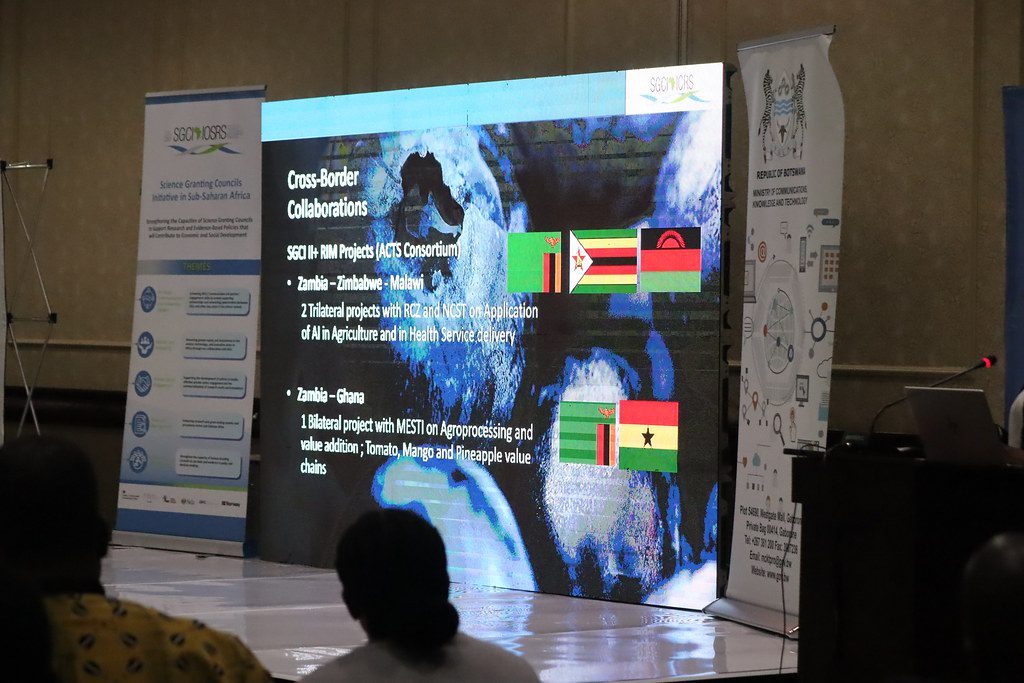SGCI News
[NAIROBI] African researchers are often underestimated and marginalized in collaborative research projects. As a result, the scientific issues are flawed and the interpretation of the data is biased, said university…
- African researchers are often marginalized in research partnerships
- Equitable partnerships promote research integrity
- Unequal partnerships “lead to biased interpretation of data”
[NAIROBI] African researchers are often underestimated and marginalized in collaborative research projects. As a result, the scientific issues are flawed and the interpretation of the data is biased, said university officials in a debate.
Academics spoke out on this subject at an online seminar on equitable and inclusive partnerships, held on May 3 under the auspices of the Southern African Research and Innovation Management Association (SARIMA).
They highlighted the unequal power relations prevailing in research partnerships between African scientists on the one hand, and their counterparts from higher-income countries on the other.
SARIMA, part of the Research and Innovation Managers’ Organization, contributes to building research management skills for scientific research funding agencies in Africa.
“Calls to fund research projects are issued by funding agencies in the Global North,” says Lyn Horn, Director of the Office of Research Integrity at the University of Cape Town, South Africa.
“Partnerships and consortiums are set up to respond to calls for projects, and researchers from the Global South are only involved because it’s an obligation.”
She adds that inequality and unfairness within research partnerships between Africans and their counterparts in higher-income countries can undermine the integrity of research.
“Inequality and lack of fairness in research partnerships undermine the integrity of research,” she says.
Research integrity is based on honesty and transparency throughout the research process. This requires adequate resources, including financial, human and organizational support,” she explains.
“If the criteria and processes used to fund research do not take into account the lack of organization and human resources, exchange rates and insufficient budgetary resources, African researchers could be unfairly disadvantaged”, warns the researcher.
She added that, as a result, funding allocations could be reduced due to tight budgets that can undermine research integrity.

For Lyn Horn, if all partners are not equally involved in research teams, particularly where race, ethnicity, gender and culture are taken into consideration, data interpretation can be biased. Similarly, research programs can be flawed and neglect important scientific issues.
“The dominant position of subsidy recipients in high-income countries can exert undue influence on scientific methodology and analysis,” she added.
Rennie Munyayi, head of doctoral studies at the University of Science and Technology of Namibia, pointed out that, in the case of partnerships between African researchers and researchers from higher-income countries, the African researchers were assigned smaller budgets and ancillary functions.
“We are entitled to ask whether these are genuine research collaborations, or simply stakeholder involvement,” she added. For Rennie Munyayi, African researchers are also marginalized when it comes to decision-making. “They are disempowered,” she said.
She added that by enabling African researchers to take the initiative in defining research objectives, appropriate methodology and expected spin-offs, the University of Science and Technology of Namibia is upholding the integrity of research.
“Practicing ethical and socially committed research is now at the heart of the principles governing research partnerships at our university,” she explained.
Rennie Munyayi reports that researchers at the University of Science and Technology of Namibia now have access to skills, resources and opportunities that enable them to participate in international research projects, and even lead some of them.
She urges countries in the global South to invest more in research. It also calls on African researchers and research organizations to forge partnerships only if they are mutually beneficial.
“Sign partnerships only if you are sure your voice will be heard, and if possible before the research program is defined and work begins,” she said. “Collaboration should begin even before funding is secured.”
Written by: By Gilbert Nakweya
Related News
How Zambia’s science council is funding research that matters
When Zambia’s National Science and Technology Council (NSTC) was established in 1997, its founding vision was to harness science, technology, and innovation to improve the lives of ordinary Zambians. More than two decades later, that vision is increasingly taking shape through a growing portfolio of…
Voices of SGCI: Council leaders on the direction and ambition of SGCI 3
At the African Union’s Science, Technology and Innovation Week in Addis Ababa, earlier this month, leaders of science granting councils reflected on what SGCI Phase 3 represents for Africa’s science and innovation systems. From ownership and alignment to stewardship and sustainability, here are their voices…
Building Africa’s science future: inside the SGCI alliance
As Phase 3 of the Science Granting Councils Initiative launches on the margins of the African Union Summit in Addis Ababa last week, the SGCI Alliance Chair explains why this moment marks a decisive turning point for African science. Cephas Adjei Mensah describes what is…
SGCI funded projects
Rwanda’s integrated approach to sustainable agriculture and nutrition
Project Titles & Institution Areas of Research Number of Projects being funded Project Duration Grant Amount In-Kind Distribution Council Collaboration with other councils





